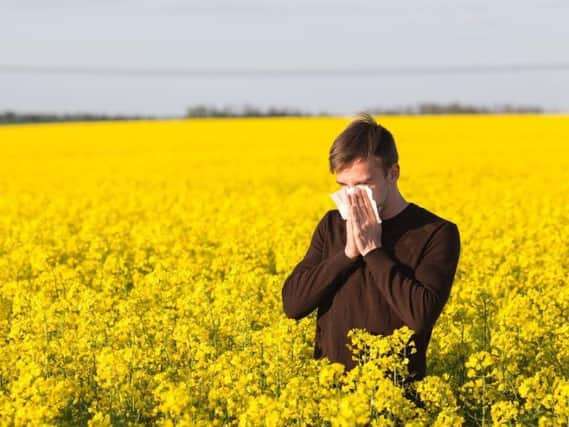Hay fever symptoms set to worsen as pollen count in Leeds rises


The pollen count for Monday and Tuesday in Leeds is at 'medium', but that is predicted to rise to 'very high' as temperatures rise this week.
Advertisement
Hide AdAdvertisement
Hide AdThe Met Office ranks the pollen count as low, moderate, high and very high.
If you are a hay fever sufferer, it’s more likely that you’ll develop symptoms if you spend time outside in areas of ‘moderate’ pollen levels.
The forecast for this week says: " Very high grass pollen risk during dry, sunny weather. Weed pollen: high risk. Fungal spores: high risk ahead of thunderstorms and during warm, humid weather. Asthma sufferers be prepared."
Daily outlook:
Monday
Pollen count: Medium
Tuesday
Pollen count: Medium
Wednesday
Pollen count: Very High
Thursday
Pollen count: Very High
Friday
Pollen count: Very High
Managing symptoms
Hay fever symptoms are usually worse between late March and September when the weather is warmer, humid and windy, according to the NHS.
Advertisement
Hide AdAdvertisement
Hide AdWhile the symptoms are similar to a cold, hay fever can last for weeks and months, with sufferers typically experiencing:
- sneezing and coughing
- a runny or blocked nose
- itchy, red or watery eyes
- itchy throat, mouth, nose and ears
- loss of smell
- pain around your temples and forehead
- headache
- earache
- tiredness
Those who have asthma may also suffer with a tight feeling in their chest, shortness of breath, wheezing and coughing.
There is currently no cure for hay fever, but sufferers can do the following to help ease symptoms when the pollen count is high:
- put Vaseline under your nose to trap pollen
- wear wraparound sunglasses to stop pollen getting into your eyes
- shower and change your clothes after being outdoors
- stay indoors when possible
- keep windows and doors shut as much as possible
- vacuum regularly and dust with a damp cloth
- buy a pollen filter for the air vents in your car and a vacuum cleaner with a special HEPA filter